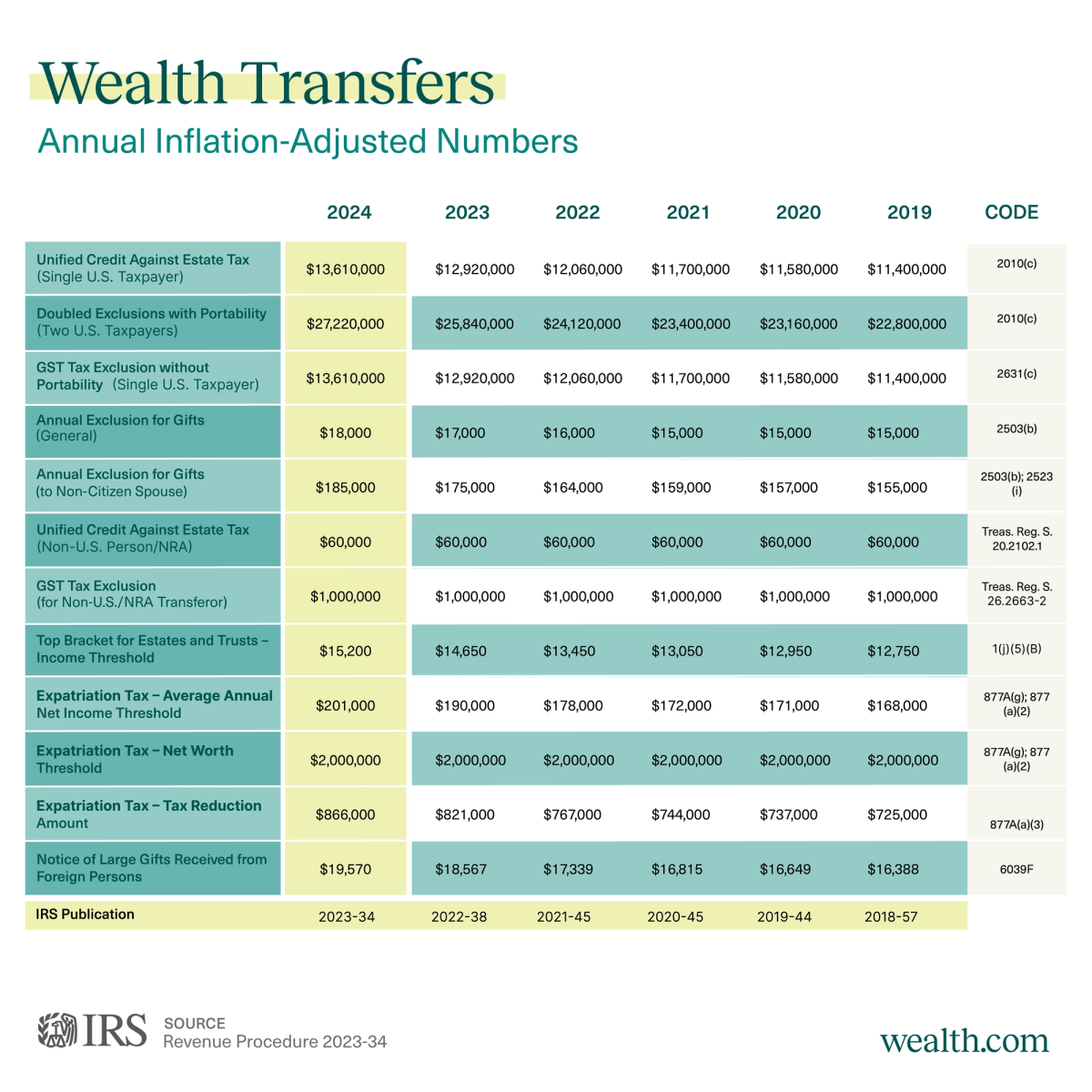2024 IRS Inflation Adjusted Numbers Reference Guide for Estate Planning

The IRS just released its inflation-adjusted numbers for 2024, which have fairly significant implications for wealth planning.
Our legal team reviewed Revenue Procedure 2023-34 and pulled out only the numbers most relevant for wealth transfer planning into one chart, plus historical information and legal sourcing. It is meant to be your handy, downloadable and printable, one-page reference guide when planning (and reporting) taxable gifts or implementing estate freeze strategies in the coming year.
The chart below is geared toward individual taxpayers, and their advisors, who are thinking about tax planning by leveraging wealth transfer techniques.

Use Cases
These are a few examples of how our IRS Inflation Adjusted Numbers Chart might be helpful:
Example 1
If you are an advisor with clients who are married and are wealthy enough to be considering lifetime wealth transfer strategies in the coming year — like setting up an irrevocable trust and gifting significant assets into that trust — you might find it relevant to know the federal estate and gift tax exemption amounts not only for one spouse, but both spouses (taking into account portability), without having to sift through the full IRS publication. Our chart helps calculate adjusted thresholds quickly.
Example 2
To understand whether your clients are making taxable gifts and whether to file a gift tax return (Form 709), you will need to know the annual gift tax exclusion amounts, which can be found in our chart below.
Example 3
If you are working with a donor or gift recipient who is a non-resident alien (i.e., a non-U.S. person for estate and gift tax purposes), these thresholds can be dramatically different from those you are used to working with when advising a U.S. person. These numbers are particularly cumbersome to track down because many of those thresholds are not adjusted for inflation from year to year.
Example 4
When gauging whether to establish the irrevocable trust, you may want to take into account the income tax costs from the compressed tax brackets of a trust compared to those for an individual, and weigh those income tax costs against the estate tax savings.
Example 5
Other specific issues may apply to your clients’ situation in the wealth transfer context. Your client may be considering expatriation or renouncing their green card or citizenship, or may be receiving large gifts from abroad themselves, triggering reporting requirements.
